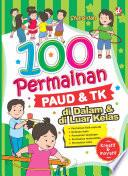
Pembiayaan bank Syariah
Membeludak. Itulah kesan yang kita tangkap kala menyaksikan sepeda motor berlalu lalang di jalan raya saat ini. Berdasarkan informasi Badan Pusat Statistik, 61.078.188 sepeda motor beredar di Indonesia hingga 2010. Dan angka itu bakal terus bertambah. Asosiasi Industri Sepeda Motor Indonesia mencatat produksi sepeda motor tahun 2009 mencapai 8.043.535 unit, yang diprediksi meningkat menjadi 10 juta unit pada 2012, dan melonjak menjadi 16 juta unit pada 2015. Lalu apa yang bisa kita lakukan?Mengapa tidak menangkap fakta dan angka itu sebagai peluang usaha? Dari sekian puluh juta pengguna sepeda motor, tentu tidak semua punya waktu dan alat untuk mencuci helm yang mereka kenakan sehari-hari. Demikian juga, pemilik motor kadang malas atau tak sempat mencuci tunggangannya. Sementara itu, bagaimana dengan anak-anak muda yang ingin unjuk identitas dengan aneka motif unik pada helm dan sepeda motor mereka? Bagaimana pula memenuhi kebutuhan mereka yang memerlukan alat transportasi sepeda motor hanya untuk sementara waktu?Cuci helm, cuci motor, jasa air brush, dan persewaan motor jelas menjadi bidang usaha yang menggiurkan untuk ditekuni. Tentu tidak secara asal-asalan. Buku ini memaparkan secara komplet pemilihan lokasi, peralatan yang diperlukan, sampai kalkulasi untung-rugi keempat bidang usaha itu. Sudah waktunya kita memanfaatkan membeludaknya peredaran sepeda motor dengan membuka usaha sendiri yang menguntungkan dan... tak ada matinya!
- ISBN 13 : 602036304X
- ISBN 10 : 9786020363042
- Judul : Pembiayaan bank Syariah
- Pengarang : Dr. A. Wangsawidjaja Z., S.H., M.H.,
- Kategori : Business & Economics
- Penerbit : Gramedia Pustaka Utama
- Bahasa : id
- Tahun : 2013
- Halaman : 552
- Google Book : https://play.google.com/store/books/details?id=yGi2EAAAQBAJ&source=gbs_api
-
Ketersediaan :
Membeludak. Itulah kesan yang kita tangkap kala menyaksikan sepeda motor berlalu lalang di jalan raya saat ini.









